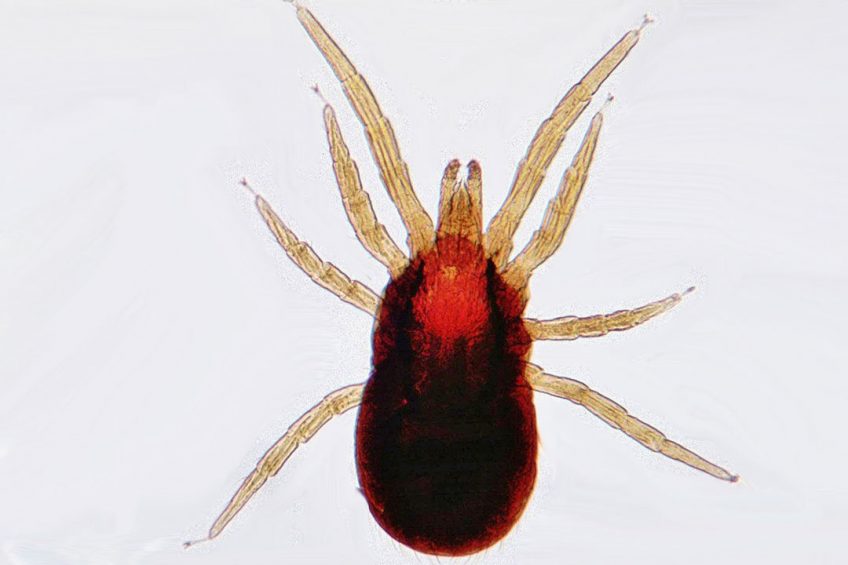Sustainable approach to Poultry Red Mite explored

Scientists are hoping to develop sustainable approaches to control Poultry Red Mite (PRM) in commercial laying hen systems.
The MiteControl project, which is due to run until April 2022, aims to develop effective and sustainable non-chemical treatment methods to control PRM using an Integrated Pest Management (IPM) approach.
Economic loss
PRM pose a substantial threat to global egg production, and is particularly prevalent in North West Europe, with more than 90% of farmers likely to be affected by the parasite, accounting for an estimate loss of €360m annually.
Severe health and welfare implications
The mites feed on the blood of hens, which can have severe health and welfare implications, including increased stress, anaemia and weight loss. The mites are also reservoirs and vectors for several bacterial and viral poultry diseases, such as Salmonella spp and E.coli spp.
Also read: Sequencing the poultry red mite genome
The challenge of treatment
Treatment of PRM presents a number of challenges particularly as many of the acaricides which the egg industry has traditionally relied upon have been withdrawn from European markets or been banned.
The project
Jon Walton, ADAS Livestock specialist and UK lead partner, said: “The development of resistance to acaricides and the rising prevalence of PRM means there is an urgent need for alternative, non-chemical based control strategies.”
The project will include the development of an innovative camera based automated PRM monitoring system (precision livestock farming) as an early warning system to alert farmers that treatment is needed.
Check out the Poultry Health Tool – with the latest insights on the 40+ most common poultry diseases.
And there will be projects around the improvement of non-chemical treatment product; biological control with natural predators, essential oils-based products and a vaccine.
Through developing and improving these methods the project aims to reduce the use of chemical treatment on laying hen farms, improve hen health and welfare, increase productivity and meet consumer demands for healthy foods.
ADAS, which has received financial support from the Noble Foods, the British Free Range Industry Association and the British Egg Marketing Research and Education Trust, will be responsible for running pilot farm trials and collecting data across multiple farms to access the risk of resistance to the treatments.
Research in laboratory and semi-commercial experiments will also be carried out by partner organisations in France (Institut Technique de l’Aviculture, Paris and University Paul-Valery, Montpellier), Belgium (KU Leuven and Experimental Poultry Centre, Geel) and the Netherlands (Koppert BV) as part of the new Interreg North West Europe project.












